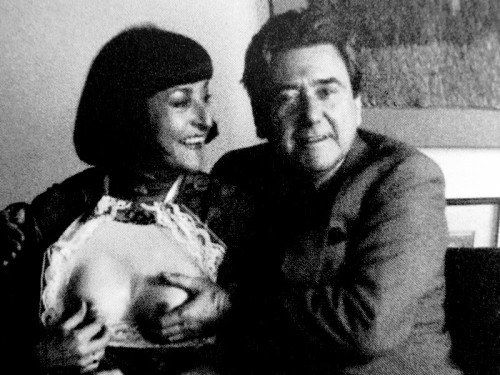...I talking with someone who is working on a collection of interviews. I mean he was interviewing me. I was having a hard time hearing (even with the hearing aids + headphones) on my cell phone and he was calling via Skype, but mostly we did OK. Also I'll get a chance to review and add to the transcript at some point. (Which is good, because there are several things I completely missed I think, and a few things I wish I had answered better, and a couple things I wasn't really prepared to talk about because the books are still somewhat in progress.) None of that matters. I'm just setting up what happened: He asked me and I tried to answer, and a lot of the time my answers were experimental. I didn't know what I would say, since I had never tried to say it before.
I will talk more about the interview book at another time, when it's getting closer to being published (not till 2013), because it sounds like it will be a very interesting project and I can't wait to read the interviews with everyone I saw on his list. But right now it isn't the point.
The point is: One of the questions lead to (but didn't start out being about) the sort of shift in tone between one part (
Brink) and the next (
The Seam). I can't remember right now what the question was, but it was something about my "two modes." I said something like
I wanted the feeling of the language to be heightened, to be--I don't want to say biblical or prophetic--maybe to be more formal, ominous like the situation. I didn't want it to be casual.
Oh look, now I'm quoting myself in a block, isn't blogging fun? But it's just so I can highlight that better, because the statement was sort of buried in that paragraph and I have something else to say about it.
S has started ordering critical studies re: speculative fiction for me, including this one he just gave me today called
Rhetorics of Fantasy. (Farah Mendlesohn. It's from Wesleyan, publishers of both Kit Reed who I liked so much at Readercon with her "feral girlscouts" story, and Alice Notley, and a very intriguing bunch of stuff about feminism(s) in SF/Fantasy. Just go look at their list.) So I immediately started browsing this book on the couch, and of course I went straight to the index and looked up
estrangement/defamiliarization (but she doesn't mention Shklovsky or the Russian formalists) and then
poetry. And I found
poetry, American Epic and I thought oh maybe really she will talk about Anne Carson or Alice Notley or someone like that, but it turns out she talks about Poe. Of course Poe is a good American, and I will finish reading it--the whole book, yes, naturally. In order even. Later. But this caught my eye before I started to flip back to the index to try again:
As we move from Poe to Lovecraft, we become increasingly aware of the degree to which the language of the intrusion fantasy, in its search for the contrast between the mundane and the intrusion, is parting company with other forms of fiction and developing its characteristic dual mode: an outer, "real" world depicted in a demotic, often faux-analytic voice, and an intruding "inner world" that must acquire a grandeur in order to communicate a sense of otherness.
There, now, I don't want to stop and explain what she means by
intrusion fantasy, and anyway I think there's enough context there to give the gist. But I do want to emphasize this part:
the language of the intruding "inner world" must acquire a grandeur in order to communicate a sense of otherness.
So that's apparently what I meant to say when I was asked in the interview about my shift in tone, heh. I don't know that
grandeur is right, exactly, but definitely the tone (or pitch) of the language is one of the ways I have tried to "communicate a sense of otherness" in the poem. But also other choices like the positioning of the two tracks on the pages, distinct typefaces, and other things. One track is much more prosaic than the other, and tends to have longer lines and blockier sorts of speeches (visual arrangement). The other track tends to have shorter lines--some very short interjections too, single words--and that speaker also has much less regard for narrative cohesiveness. (I think she just doesn't care if you know
what she is talking about, exactly, so long as you know how she
feels about it.) And then the outer-world voice (in my case, a third voice) is the most demotic, and just like she describes above "faux-analytic" but also sort of officious, and is just in prose. I suppose I had some understanding of these conventions without really thinking too much about them at the time. Except for the frame story--the Archivist's Introduction. I was very conscious that it was a received sort of notion to have that kind of frame to introduce a fantasy. Children's stories might be a good example: Alice's sister reading to her under a tree, before the Wonderland part of the story begins. Isn't that how the beginning goes? Oh except that so-called outer-world is also an intruding world--the Archivist lives in a future even more distant than that of the poem.























